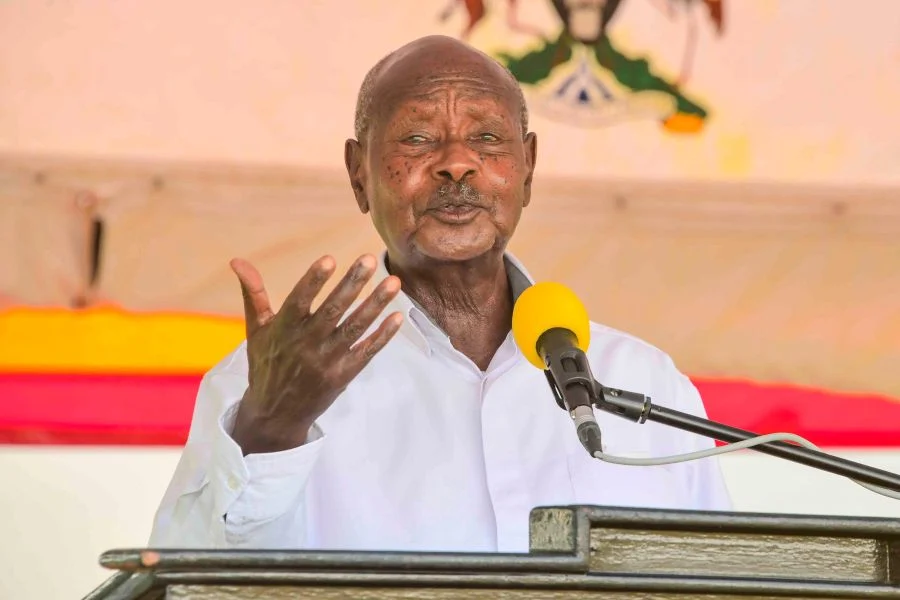Museveni Explains the Break-Up of Tororo

President Museveni has defended the decision to split Greater Tororo into three new districts and a city, saying the restructuring is meant to calm ethnic tensions and ensure fairer service delivery for both the Japadhola and Iteso communities.
The decision came during a high-level peace-building meeting at State House Entebbe, attended by Vice President Jessica Alupo, ministers, MPs, cultural and religious leaders, district council members and LC III chairpersons.
Museveni said the restructuring, long delayed by local disagreement, was now settled in principle.
“We have agreed Tororo becomes a neutral city, and we create three new districts—Mukuju, Mulanda, and a third whose name must be neutral,” the President said.
“Some people want to call it Tororo, but we are saying no—go and get a neutral name.”
Museveni urged leaders to settle naming issues through peaceful, private dialogue, warning that fixation on a name could derail the broader goal of unity and development.
“You don’t have to fight. Discuss among yourselves quietly. But it’s not correct to say you’re going to die over a name,” he said.
Under the agreed plan, the Iteso will retain Mukuju—considered uncontested—and will also be represented within the boundaries of the newly declared Tororo City.
The Japadhola, also known as Badama, will receive Mulanda and the third district, whose final name is still under consultation.
Museveni described the deal as a fair compromise meant to mirror similar arrangements elsewhere in Uganda.
“The Japadhola get two new districts, and the Iteso get a district and a city. Just like Mbale has Mbale District and Mbale City, Tororo can also have a district and a neutral city,” he said.
He criticised prolonged ethnic wrangling over land and administration as unproductive and harmful to development, pointing to the example of former Bukedi District, which was split into multiple districts to bring services closer to the people.
“You people are really wasting time for your people,” Museveni said.
“What’s crucial is bringing services nearer. That’s why we broke up larger districts like Bukedi, which once covered Pallisa and Busia.”
The President called on leaders to rise above historical grievances and think practically about governance and service delivery, reminding them that decentralisation was never meant to entrench ethnic divisions.
He quoted scripture and reflected on his own upbringing as a Mulokole to warn against shallow disputes over land identity and names.
“We used to say: ‘They left undone what they ought to have done, and they did what they ought not to have done, and there is no truth in them.’ That is what you have been doing,” he said.
He also invoked the biblical example of Abraham and his herdsmen to encourage compromise: “Even if you had said the whole of Tororo Town goes to the Bateso, so what? What matters is service, not ownership.”
Museveni reiterated that the aim of government was to foster economic development and community wellbeing, not to reinforce ethnic claims over territories.
“We should not get stuck on the name Tororo. What matters most is wealth creation, not the name itself,” he said.
He concluded by commending the spirit of cooperation shown at the meeting and asked the leaders to finalise consultations and communicate their conclusions through Vice President Alupo.
“This place is home to both communities,” he said. “Let’s focus on the future, not the past.”
President Yoweri Museveni has defended the decision to split Greater Tororo into three new districts and a city, saying the restructuring is meant to calm ethnic tensions and ensure fairer service delivery for both the Japadhola and Iteso communities.



0 Comments